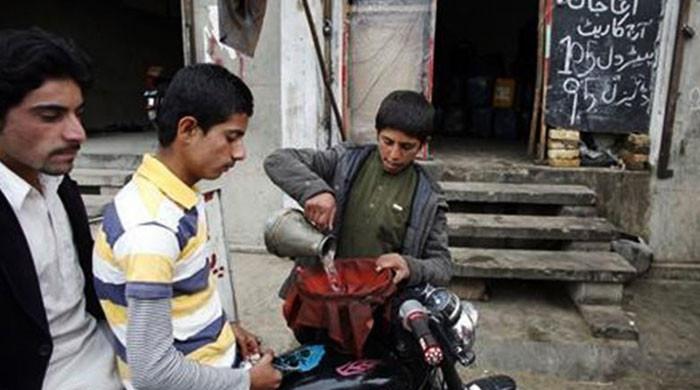- Gwadar Commissioner Confirms the suspension of travel, the movement of the fuel.
- The situation aggravating quickly through the divisions of Makran and Chagai.
- Exaggerated by those who oppose the ban on smuggling fuel, says Govt.
QUETTA: Iran’s current armed conflict with Israel has had critical repercussions in the province of neighboring Pakistan Balutchistan where a province fuel crisis takes place at an alarming speed, The news reported on Monday.
From the provincial capital Quetta to Turbat, Panjgur, Gwadar and Chagai, the petrol pumps stop, the essential supplies are stuck and the wheels of daily life stop.
In Quetta, more than 70% of service stations have already closed, with long chaotic queues forming a few that remain operational. Panic spreads as fuel shortages deepened, and there are fears that during the next 24 hours, all the fuel pumps of the city can completely cease operations.
However, the crisis is not limited to Quetta, because the situation aggravates at an increased pace between the Makran and Chagai divisions.
The Balutchistan government has indefinitely sealed all border passages with Iran, including critical commercial and fuel roads in Turbat, Panjgur, Gwadar and Chagai.
The decision, made in the light of the climbing of regional security threats, cut the main offer of Iranian petrol of the province, which responds to the demand for fuel from Balutchistan.
In Chagai, the authorities have confirmed the closure of border passages in Mashkel, a key trade route with Iran. Similar to Makran, the closure of the borders sparked fuel shortages and disrupted the offer of essential goods in the towns and villages of the region.
The Gwadar sub-commissioner confirmed the immediate suspension of travel and fuel movements through the Gabad-Kalatuk border, while the Panjgur authorities imposed a complete closure of pedestrians and fuel passages with Iran.
“Given the increase in security risks and the international volatile situation, these are essential precautionary measures,” said Panjgur administration.
The crisis has been tightening its grip for weeks. In Quetta, all the mini fuel pumps selling Iranian fuel have already been closed in the past two weeks after government repression. Similar closures and disruption of the offer are now reported in the Chagai Mashkel region, where communities for a long time dependent on cross -border trade are faced with severe transport paralysis.
However, the government of Balutchistan argues that there is no fuel urgency across the province. Government spokesman Shahid Rind rejected the fuel shortage as “a false narrative propagation by smugglers”. He said that Iranian petrol stations are safety risks, citing 28 fuel accidents across Quetta in the last month, including Airport Road incidents and the Hazar Ganji region.
“These so-called shortages are exaggerated by those who want to raise the ban on Iranian contraband fuel,” said Rind, adding that strict measures were taken to ensure the supply of legal for registered pumps.
Fuel stations have found hoarding or refusal of services will face immediate legal consequences, he warned.
However, ground relations have a radically different reality. In cities, border towns and remote areas of the province – especially Quetta, Gwadar, Panjgur, Turbat and Chagai – petrol pumps have become dry, long lines persist and fears increase that the crunch of fuel can soon bring the whole province to statute.
The rapid climbing of the international crisis between Iran and Israel is no longer a distant geopolitical problem – its direct benefits close the streets of Balutchistan, freeing its markets and locking its borders.
The local administrations of Gwadar, Panjgur and Chagai warned residents to limit unnecessary trips and to cooperate fully with the authorities during this critical period. Officials said cross -border restrictions will remain in place until the security situation stabilizes.
While Balutchistan appropriated to deepen fuel shortages, tighten border controls and spread panic, its inhabitants are now taken between strict security distributions, economic paralysis and rapid supply of essential goods.
In the midst of the developing situation in Balutchistan, the federal minister of oil Ali Pervaiz Malik refuted rumors and reports concerning the shortage of oil in the country.
The Minister said Pakistan had reserves of petroleum products.




